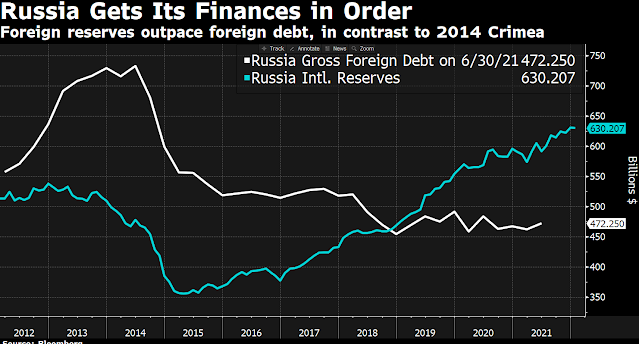Since the Crimea Annexation in 2014 and the Western sanctions that followed, Russia has been building up its reserves. In 2014, the nation had about $400 billion stored away. Now, that figure is ~$630 billion -- made up less and less of the U.S. dollar (the world's reserve currency.) It's that role that makes sanctions traditionally effective as it has consequences for trade and payments around the world. But for Russia, only 16.4% of their reserves are made up of the greenback, down from ~22% just one year ago and 40% four years ago. Instead, the nation has opted for euros and yuan.
Russian currency reserves and its foreign debt.
At the same time, its foreign debt has been decreasing too from $732 billion in 2014 to $472 billion as of most recent data. 40% of its exports now use the dollar, down from 100% in 2013. The dollar's share of Russian imports has also dropped to 60% from 90%, respectively. Add on slashed Treasury holdings and it's clear there is a degree of insulation in Russia's economy when it comes to the fallout from Western sanctions.


No comments:
Post a Comment